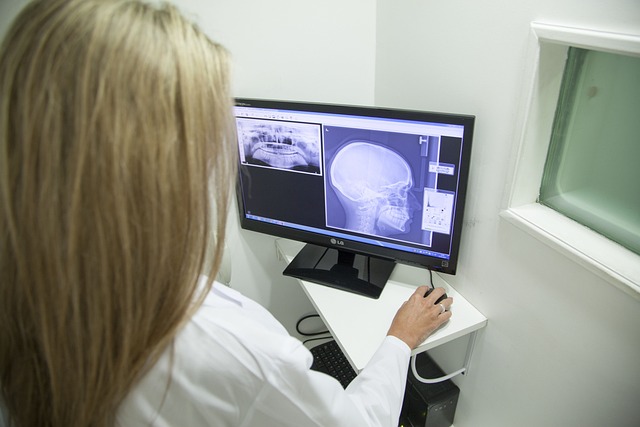For one to uphold the status of a certified nurse, it’s vital to periodically renew nursing qualifications. The need for this arises from regulatory and professional obligations that affirm all practicing nurses are abreast with current standards and practices in healthcare. Inherent within this system is the Ohio nursing license renewal – a process echoed by thousands of nurses within Ohio that mirrors the same model of professional progression and patient safety.
This renewal process enables an exhaustive evaluation of one’s professional aptitude to execute responsibilities as a registered nurse. Particularly, the Ohio nursing license renewal involves various phases including validation of active practice hours, satisfaction of ongoing education prerequisites, assurance of adherence to ethical norms and finally submitting the renewal application form. This signifies a journey that bolsters the commitment towards their profession and service rendered by these nurses unto their patients.
The Importance of Nursing License Renewal
In the labyrinth of a nurse’s professional existence, the management of nursing credentials stands as an indispensable pillar. An eternal riddle that often shadows their thoughts is, “When can I refresh my Ohio nursing license?” Across numerous states including Ohio, the rejuvenation of a nursing permit follows a temporal rhythm demanding unwavering vigilance to prevent any potential slippage in credentials. A contemporary active nursing license emerges as an unassailable evidence of a nurse’s authentic professional standing, bearing witness to their fulfillment of all essential qualifications and harmony with their respective nursing board.
The possession of an up-to-date nursing permission not only corroborates the proficiency and vocational zeal of a nurse but also serves as a bulwark for patients’ wellness; The standards for licensure ensure nurses stay abreast with evolving trends in healthcare practices and advancements. Notably bound within this renewal process is usually the mandate for ongoing education in nursing, thus propelling nurses into an infinite cycle of knowledge acquisition and growth within their vocation. Consequently, punctual revitalization of one’s nursing permit becomes crucial to preserving credibility within the field, fostering consistency in patient care delivery and bolstering overall esteem surrounding this noble profession.
Eligibility Criteria for Nursing License Renewal

Nursing licensure renewal, a stringent process that ensures the pinnacle of patient care and safety, necessitates strict compliance with certain eligibility prerequisites. Foremost among these is the attainment of Continuing Education Units (CEUs). However, be aware that this requirement exhibits burstiness; it differs considerably across states. To illustrate, muse over this query – “What is the CEU requirement for nurses in Ohio?” Surprisingly, you will discover an answer swirling with specificity: 24 CEUs every two years. This underscores the significance of ongoing professional growth throughout a nurse’s career.
But let us not forget about other aspects shrouded in perplexity. Depending on your state of licensure, there may lie additional stipulations linked to professional conduct or even current employment and performance within a nursing role. It’s imperative for practicing nurses to remain abreast with these intricate rules as they are susceptible to changes over time – exhibiting both perplexity and burstiness.
Moreover, those nursing professionals who have disciplinary marks staining their records might find themselves facing extra hurdles. Compliance with all these conditions in full measure is not just beneficial but crucially essential for successful nursing license renewal.
The Steps Involved in the Nursing License Renewal Process
The pathway to renewing nursing licenses, while seemingly formidable, need not necessarily be. It commences with the candidate expressing their intent to renew, typically via digital channels provided by the corresponding nursing board. The ensuing phase entails meeting any ongoing education prerequisites that may differ according to state and specialty. Importantly, evidence of finished continuous education hours must accompany the application.
As for inquiries regarding “What does an inactive nursing license mean in Ohio?” it implies that the nurse has opted against renewal of their license which forbids them from lawful practice. To regain active status, compliance with specific criteria set by the Ohio Board of Nursing is mandatory. This commonly encompasses submission of an application along with fees and proof of continued learning; additionally a refresher course might be obligatory depending on how long the license remained inactive.
Documents Required for Nursing License Renewal
As you traverse the labyrinthine process of renewing your nursing license, it is paramount to grasp the multifaceted nature of documents essential for a fluid procedure. The primary requisite that emerges from this complex web is evidence of unbroken competence or professional development. This can be authenticated by unveiling your transcripts, certificates from acknowledged training programs, self-evaluation reports, among other formal affirmations of continual professional education.
A question often echoing in the corridors amongst nurses is – “How do I ascertain if my Ohio nursing license falls within the compact?” The Nurse Licensure Compact (NLC) states necessitate affirmation of residency as an integral fragment of documentation. The NLC bestows upon nurses the privilege to possess one multi-state license in their chief state of residence and practice across different NLC states under that very license. To help navigate these murky waters, the state board’s nursing website offers resources to validate if your Ohio nursing licence aligns with those within the compact. Additionally, it delivers a comprehensive catalogue encompassing all needed paperwork for licence renewal.
The second crucial document is proof of your identity. The validity of this requirement can be substantiated by presenting government-issued identification cards like a driver’s license or passport. This must include your current, legal name and signature.
- Proof of Continued Competence:
- Transcripts from accredited institutions.
- Certificates from recognized training programs.
- Self-evaluation reports demonstrating professional growth.
- Validation of Residency:
- A valid Ohio address as the primary residence.
- Evidence such as utility bills, lease agreements, etc., to confirm residency status in the state.
- Affirmation that Ohio Nursing License falls within NLC:
- Consultation with resources provided on the State Board’s nursing website for validation purposes.
- Documentation to prove you hold an active multi-state license if applicable.
- Government-Issued Identification Card:
- Driver’s License or Passport showing current legal name and signature
- Social Security Number (SSN) or Individual Taxpayer Identification Number (ITIN).
Furthermore, some states may require nurses to submit evidence of recent clinical practice hours. This could comprise documentation signed off by their employer confirming the number of hours worked during a specific period. Additionally, certain states mandate criminal background checks and fingerprinting as part of their renewal process; hence it would be prudent to check these specifics on your respective state board’s website.
- Verification Of Clinical Practice Hours:
- Documented proof signed by employers indicating recent work experience in a clinical setting
- Criminal Background Checks & Fingerprinting:
- ◦ Depending upon individual state requirements, nurses might need to undergo these procedures before applying for licence renewal.
Lastly but not least significantly are fees associated with renewing your nursing license which vary widely between different states and type of licenses held. Therefore always make sure you have reviewed all fee-related details listed on your state board’s website.
- Payment of Renewal Fees:
- The fees vary between states and types of licenses, so it’s essential to review this information on the state board’s website.
- The fees vary between states and types of licenses, so it’s essential to review this information on the state board’s website.
The Timeline for Nursing License Renewal
Navigating the labyrinthine intricacies of the nursing profession, a key cornerstone to grasp is the timeline for renewing one’s nursing license. This procedure, in essence, ebbs and flows by board and state—most states calling for biennial renewal. However, this cycle might oscillate more or less frequently contingent on peculiar state directives or even specificities linked to the nurse’s area of expertise. Regardless of these temporal fluctuations, it remains vital to underscore that an application for renewed licensure should ideally be filed several weeks prior to when the existing license reaches its expiration.
To comprehend this timeline necessitates anticipatory planning – tardy submissions may trigger a shift into inactive status with potential supplementary charges for resurrecting the license. In addition, there lurks significant ramifications for nurses caught in practice with an expired permit; these could span from legal entanglements to punitive measures doled out by their respective board of nursing. Therefore, it serves as an essential duty incumbent upon each nurse not only be cognizant but also conform precisely to deadlines set forth by their individual licensing body.
Fees Associated with Nursing License Renewal
The fluctuating expense of nursing license renewal across diverse jurisdictions necessitates a comprehensive understanding for nurses regarding the specific tariffs tied to renewing their licensure in their respective state or country. For example, within the United States, this cost can oscillate between $50 and $200, not accounting for any superadded charges attributed to processing or tardy fees. Moreover, the re-certification price may envelop various components such as an application levy, biennial renewal fee, and remuneration towards compulsory continued education.
Additional expenditures might surface due to factors like accelerated request processing, duplicate licensing requests or even when background verifications are mandated. Certain certifying boards may propose discounted rates to retired or inactive nurses; however regular full-time or part-time practice typically involves disbursing the standard re-certification fee. It bears emphasizing that these outlays are generally shouldered by the nurses themselves – marking them as vital expenditure in preserving their professional standing. Consequently efficient fiscal planning becomes imperative for nurses in optimally managing these recurrent levies.
FAQ
The evolution of refreshing nursing credentials requires one to navigate a sequence of steps, which encompass fulfilling continuous education prerequisites, lodging an application for rejuvenation and settling the requisite fees.
Rejuvenating your nursing permit is paramount as this action enables you to persist in practicing as a registered nurse. Neglecting to renew your license could lead to a cessation or rescinding of your capacity to practice within the field of nursing.
The criteria differ from state-to-state but typically require holding an active license, satisfying continuing educational requirements dictated by the state and possessing no disciplinary actions against your current licensure.
Ordinarily, embark on this journey with completion of mandatory continuing education courses set forth by your residing state. Subsequently, tender an application for rejuvenation towards your local jurisdiction’s board overseeing nurses. Lastly, settle any outstanding charges linked directly with renewal.
More often than not, proof showcasing completed ongoing learning experiences and possession of an active licence will suffice; though at times additional paperwork such as proof-of-residence documentation or criminal background checks may be required. Always ensure accuracy by checking specifics via your local Nursing Board’s directives.
The duration prior another renewal differs among jurisdictions; however most commonly nurses must pursue re-certification every two years. It’s crucial that exact timelines are confirmed with respective local boards governing over nurses.
Fees fluctuate significantly among states. Generally, you could expect to pay anywhere from $50 to an upwards of $200, excluding the cost for compulsory ongoing education.
Unfortunately yes; fees are recurring and must be settled upon every instance of your license’s rejuvenation.
Absolutely not! Practicing as a nurse without possessing legal authorisation is considered unlawful and can lead to harsh penalties such as hefty fines or even loss of future practice rights within the nursing profession.
In some jurisdictions they offer waivers or fee reductions particularly for nurses falling under certain categories like retirees or individuals experiencing financial difficulties. It’s advisable that one contacts their respective state board overseeing nursing affairs for specific guidance.



